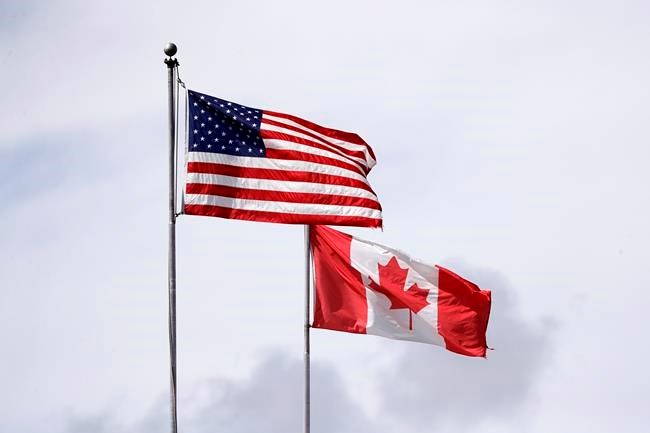OTTAWA — The Canadian government is telling the Federal Court of Appeal a judge made serious legal mistakes in striking down a refugee pact between Ottawa and Washington.
Canada's lawyers argue Federal Court Justice Ann Marie McDonald misapplied the law when she declared in July that the Safe Third Country Agreement violates constitutional guarantees of life, liberty and security.
In a written submission filed in advance of an oral hearing later this month, the government says the court's decision should be overturned because the agreement does not breach the principles of fundamental justice.
Under the bilateral agreement, which took effect in 2004, Canada and the U.S. recognize each other as safe places to seek protection.
It means Canada can turn back potential refugees who arrive at land ports of entry along the Canada-U. S. border on the basis they must pursue their claims in the U.S., the country where they first arrived.
Canadian refugee advocates have vigorously fought the asylum agreement, arguing the U.S. is not always a safe country for people fleeing persecution.
Several refugee claimants took the case to court along with the Canadian Council for Refugees, the Canadian Council of Churches and Amnesty International, who participated in the proceedings as public interest parties.
In each case the applicants, who are citizens of El Salvador, Ethiopia and Syria, arrived at a Canadian land entry port from the U.S. and sought refugee protection.
They argued in court that by returning ineligible refugee claimants to the U.S., Canada exposes them to risks in the form of detention and other rights violations.
In her decision last year, McDonald concluded the Safe Third Country Agreement results in ineligible claimants being imprisoned by U.S. authorities.
Detention and the consequences flowing from it are "inconsistent with the spirit and objective" of the refugee agreement and amount to a violation of the rights guaranteed by Section 7 of the charter, she wrote.
"The evidence clearly demonstrates that those returned to the U.S. by Canadian officials are detained as a penalty."
The court's declaration of invalidity was suspended for six months and later extended, leaving the refugee pact in place while the appeal led by the ministers of immigration and public safety takes place.
In its submission, the government argues the evidence before the Federal Court showed that neither U.S. asylum law nor practice means automatic detention for those determined to be ineligible to claim refugee status in Canada under the bilateral agreement.
Rather, detention is discretionary and for those held there is a "robust detention review scheme, including the right to counsel," the submission says.
Further, where detention does occur, it is only for short periods and followed by release unless extended time in custody is lawful in the circumstances, it adds.
"The risk of potential detention does not shock the conscience," the federal submission says.
The U.S. asylum regime has "many safeguards to protect against inhumane detention" and Canadian law provides "safety valve mechanisms" to exempt someone from being returned to the U.S., should they face a likely risk of unlawful detention, the filing says.
In their submission to the court, the refugee claimants and public interest parties say the immigration and public safety ministers have not identified a reviewable error of law.
"Instead they ask this Court to downplay the evidence of unwarranted and often cruel and unusual detention of refugee claimants following rejection by Canada under the (Safe Third Country Agreement), and to rely instead on bald assertions that purported 'safety valves' at the border found 'illusory' by the Federal Court are nevertheless sufficient to save the unconstitutional regime."
The claimants and their supporters also contend that the ministers argue "the principles of fundamental justice do not apply, and that in any event administrative convenience justifies the rights violations."
"Their appeal should be dismissed."
This report by The Canadian Press was first published Feb. 2, 2021.
Jim Bronskill, The Canadian Press



